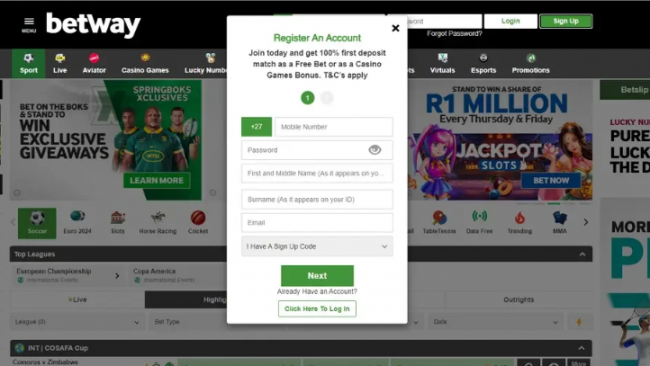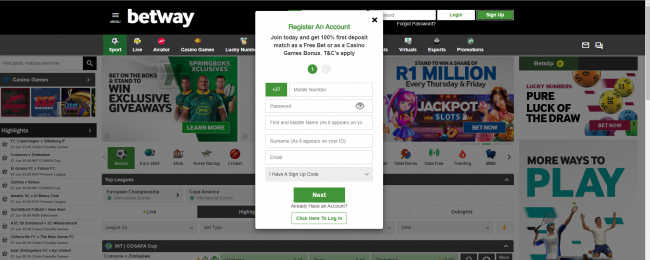Crowdfunding has emerged as a transformative financing option for businesses, revolutionizing the way entrepreneurs raise capital. Whether you're a startup looking to bring a groundbreaking product to market or an established business seeking expansion funds, crowdfunding provides a viable avenue for financial support. In this comprehensive exploration, we will delve into the fundamentals of crowdfunding, examining its types, benefits, challenges, and best practices to help you navigate this dynamic landscape and optimize your fundraising efforts.
Understanding Crowdfunding:
At its core, crowdfunding involves raising small amounts of money from a large number of people to fund a project, product, or business venture. This decentralized approach democratizes the funding process, allowing entrepreneurs to tap into a diverse pool of investors or backers who are collectively willing to contribute to a shared vision. There are three types of crowdfunding:
Crowdfundwala founded in 2023 is one of the leading crowdfunding platforms in India. It focuses on supporting Ngo causes,Msme, and startup , Small business creative projects. crowdfundwala, provides a user-friendly interface for campaigners to create customized campaigns with engaging storytelling elements. The platform boasts an extensive network of supporters and has successfully raised funds for numerous impactful projects.
“We aim to fuel dreams and create a world where every individual can make a positive impact Founder sanjay Sahu & Co-Fonder Renuka Behera of crowdfundwala ”

Reward-based Crowdfunding:
In this model, backers contribute funds in exchange for non-financial rewards, such as early access to products, exclusive experiences, or special recognition.
Platforms like Kickstarter and Indiegogo are popular for reward-based crowdfunding, attracting creative projects, tech innovations, and product launches.
Equity-based Crowdfunding:
Equity crowdfunding involves offering investors a stake in the company in exchange for financial support.
Platforms like SeedInvest and Crowdcube facilitate equity crowdfunding, enabling businesses to raise capital while giving backers a potential share of future profits.
Debt-based Crowdfunding (Peer-to-Peer Lending):
Businesses can borrow money directly from a group of individuals, with the promise to repay the loan over a specified period with interest.
Platforms like LendingClub and Funding Circle connect borrowers with individual lenders, creating an alternative to traditional bank loans.
Benefits of Crowdfunding:
Access to Capital:
Crowdfunding provides an avenue for businesses to access capital without relying solely on traditional financing channels like banks or venture capitalists.
It opens doors for entrepreneurs who may struggle to secure funding through conventional means, fostering a more inclusive financial landscape.
Market Validation:
A successful crowdfunding campaign not only raises funds but also serves as a powerful indicator of market demand.
By attracting backers, businesses can validate their ideas and gauge interest in their products or services before investing significant resources.
Community Building:
Crowdfunding creates a community of supporters who believe in a business's mission or product.
Engaging with backers fosters brand loyalty and can lead to long-term customer relationships, creating a supportive network around the business.
Marketing and Publicity:
Crowdfunding campaigns act as marketing initiatives, generating buzz and publicity for the business.
The crowdfunding platform itself, coupled with social media and press coverage, can significantly enhance a business's visibility.
Challenges and Considerations
Crowdfunding Campaign Planning:
Successful crowdfunding requires meticulous planning, including setting clear goals, defining the target audience, and creating compelling campaign materials.
Lack of preparation or a poorly executed campaign can lead to failure, highlighting the importance of strategic planning.
Fulfillment Challenges:
Meeting the promises made during a crowdfunding campaign, especially for reward-based projects, can be challenging.
Entrepreneurs must carefully manage production, shipping, and communication to ensure backers receive their rewards in a timely and satisfactory manner.
Managing Expectations:
Not all crowdfunding campaigns reach their funding goals, and businesses must be prepared for both success and failure.
Transparent communication with backers is crucial, ensuring that expectations are managed, and any setbacks are addressed promptly.
Legal and Regulatory Compliance:
Equity-based crowdfunding involves legal considerations, with businesses needing to comply with securities regulations.
Understanding and adhering to relevant laws and regulations is imperative to avoid legal complications.
Best Practices for Crowdfunding Success:
Compelling Storytelling:
Craft a compelling narrative that resonates with your audience, clearly communicating the purpose, impact, and uniqueness of your project or business.
Engaging Visuals:
Invest in high-quality visuals, including images and videos, to showcase your product or project effectively.
Visuals play a crucial role in capturing the attention of potential backers and conveying your message.
Transparent Communication:
Foster trust by being transparent about your project's progress, challenges, and any potential risks.
Regular updates keep backers informed and engaged throughout the crowdfunding journey.
Offer Attractive Rewards:
In reward-based crowdfunding, design appealing and relevant rewards to incentivize backers.
Tailor rewards to different contribution levels, providing options for backers with varying budgets.
Strategic Marketing:
Leverage social media, email marketing, and other channels to create awareness and drive traffic to your crowdfunding campaign.
Build a marketing plan that includes pre-launch, launch, and post-launch phases.
Conclusion:
Crowdfunding has emerged as a powerful tool for businesses to raise capital, validate ideas, and build communities. By understanding the various types of crowdfunding, embracing its benefits, and navigating potential challenges, entrepreneurs can harness the full potential of this innovative funding model. With careful planning, transparent communication, and a compelling narrative, crowdfunding can not only finance your business but also propel it towards sustained growth and success.
(FAQs) about Crowdfunding for Businesses:
What is crowdfunding?
Crowdfunding is a financing model where businesses raise small amounts of money from a large number of people, often through online platforms. It can take various forms, including reward-based, equity-based, and debt-based crowdfunding.
How does reward-based crowdfunding work?
In reward-based crowdfunding, backers contribute funds in exchange for non-financial rewards, such as early access to products, exclusive experiences, or special recognition. Popular platforms for this model include Kickstarter and Indiegogo.
What is equity-based crowdfunding?
Equity crowdfunding involves offering investors a stake in the company in exchange for financial support. Investors become shareholders and may receive a share of future profits. Platforms like SeedInvest and Crowdcube facilitate equity crowdfunding.
How does debt-based crowdfunding (peer-to-peer lending) function?
Debt-based crowdfunding, also known as peer-to-peer lending, allows businesses to borrow money directly from individuals. The borrowed amount is repaid over a specified period with interest. Platforms like LendingClub and Funding Circle connect borrowers with individual lenders.
What are the benefits of crowdfunding for businesses?
Crowdfunding provides access to capital from a diverse pool of investors.
Successful campaigns validate market demand and generate publicity.
It fosters community building and brand loyalty.
What are the challenges of crowdfunding?
Challenges include meticulous campaign planning, fulfillment complexities, managing expectations, and legal compliance, especially in equity-based crowdfunding.
How should I plan a crowdfunding campaign?
Plan strategically by setting clear goals, defining your target audience, and creating compelling campaign materials. A well-executed plan enhances the chances of a successful campaign.
What happens if a crowdfunding campaign doesn't reach its goal?
If a campaign falls short of its funding goal, backers are usually not charged, and the project may not proceed as planned. Communication is key, and businesses should transparently address setbacks and discuss the next steps with backers.
How can businesses fulfill rewards in a reward-based crowdfunding campaign?
Fulfilling rewards involves careful management of production, shipping, and communication. Businesses should have a solid plan in place to meet the promises made during the campaign.
What legal considerations are involved in equity-based crowdfunding?
Equity-based crowdfunding involves compliance with securities regulations. Businesses must understand and adhere to relevant laws to avoid legal complications.
How important is storytelling in a crowdfunding campaign?
Compelling storytelling is crucial. Craft a narrative that communicates the purpose, impact, and uniqueness of your project or business to resonate with potential backers.
communication, and a well-thought-out campaign plan. Leveraging social media and other channels is essential for creating awareness and driving traffic to your campaign.
What role does visual content play in a crowdfunding campaign?
Visuals, including high-quality images and videos, play a significant role in capturing attention and effectively showcasing your product or project. Engaging visuals can contribute to the success of your campaign.
How can businesses build and maintain community support through crowdfunding?
Engage with backers through transparent communication and regular updates. Building a sense of community around your project or business fosters brand loyalty and long-term relationships.
What are some best practices for crowdfunding success?
Best practices include strategic marketing, offering attractive rewards, and transparent
Can crowdfunding campaigns be used for both startups and established businesses?
Yes, crowdfunding is suitable for both startups and established businesses. It provides a flexible funding option for various projects, from launching new products to financing expansion efforts.
















